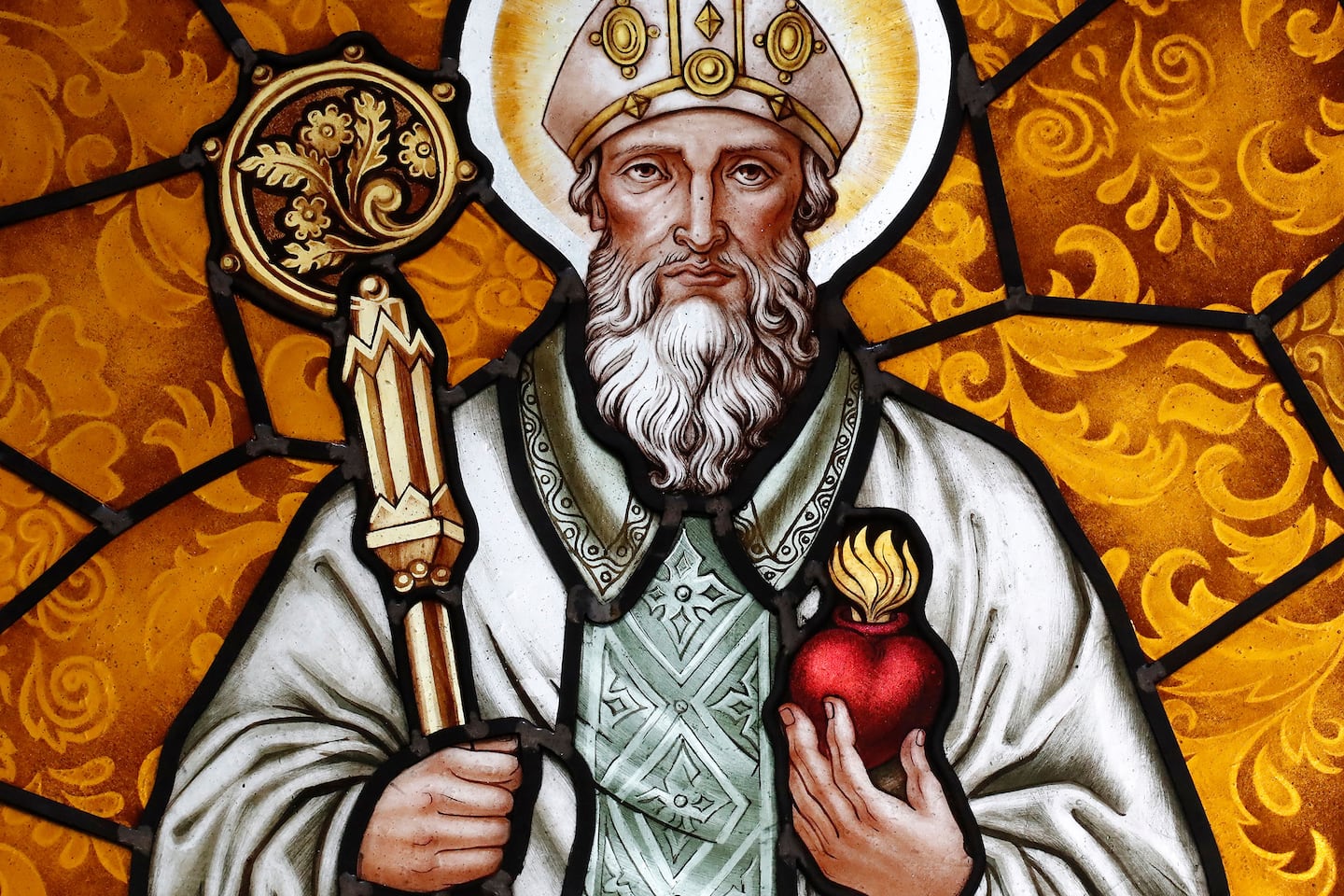Do we detect a theme here?
Many fun facts have surfaced about the new pope. He roots for the Chicago White Sox, he plays Wordle, he has watched the movie “Conclave,” and so on.
But the most salient fact about Leo is his lifetime devotion to the theologian, philosopher, and memoirist Augustine. Alongside New Testament epistolist St. Paul and St. Francis of Assisi, Augustine is arguably the most important mortal in the 2,000-year history of Catholicism.
Yes, I hear you rooting for St. Thomas Aquinas, but he’s deucedly hard to read. Augustine — especially when writing about what Boston College theology professor Thomas Groome calls “his wild and woolly youth” — is quite the opposite.
The child of a Roman father and an ethnic Berber mother, Augustine gloriously misspent his youth indulging, inter alia, in sins of the flesh. “I would be too wretched,” he wrote in his famous “Confessions,” “if I were kept from a woman’s arms.” Before his conversion to Christianity, he fathered a child out of wedlock with his long-term girlfriend.
After studying in Carthage, Rome, and Milan, Augustine converted to Christianity at age 31. He returned to his family home in North Africa, eventually becoming the bishop of Hippo, in present-day Algeria.
More relevant to the current papacy: What were Augustine’s core teachings? “If the pope is a good Augustinian,” Groome told me, “he will continue Pope Francis’s doctrine of ‘todos, todos, todos’ (all, all, all),” referring to a broadly inclusive church. “He’ll have to welcome LBGTQ people, the poor, the downtrodden, the divorced, and the unmarried. Augustine believed in God’s unconditional love for all.”
The Augustinian order in which the pope served for decades combines contemplative values with missionary work; it is “both inward-looking and outward-looking,” Bryn Mawr professor Catherine Conybeare explained during a recent appearance at Harvard Book Store promoting her new biography, “Augustine the African.” “Pope Leo takes that very seriously indeed.”
Leo’s 20-year-long service in Peru — he is a dual citizen of the United States and Peru — plunged him into the country’s violent political upheavals. In 2017, he publicly urged former president Alberto Fujimori of Peru to “personally ask forgiveness for the great injustices that were committed and for which he was prosecuted.”
In his writings, Augustine famously counterposed the idealized City of Man, the material, fallen world we live in, with the City of God, the Christian spiritual ideal toward which men and women must strive. In a recent interview with the website Crux, Leo noted “the news that Elon Musk is going to be the first trillionaire in the world. What does that mean and what’s that about? If that is the only thing that has value anymore, then we’re in big trouble.”
Musk predictably overreacted, citing the Vatican’s vast wealth in an X riposte. (Curiously he neglected to mention the Augustine Order’s vow of poverty.) I doubt either Augustine or Leo would spend much time worrying about Musk, but they would spend time urging their followers to start the pilgrimage away from material values and toward spiritual fulfillment.
Augustine lived to see his life’s foundation destroyed. When he was 55 years old, the Visigoths sacked Rome, the headquarters of western Christianity. While he lay dying in Hippo, the Vandals, another Germanic tribe, were camped on the outskirts of the city, which they eventually burned.
We’ll hope for a better world under Leo than the one that Augustine lived to see.
Alex Beam’s column appears regularly in the Globe. Follow him @imalexbeamyrnot.
